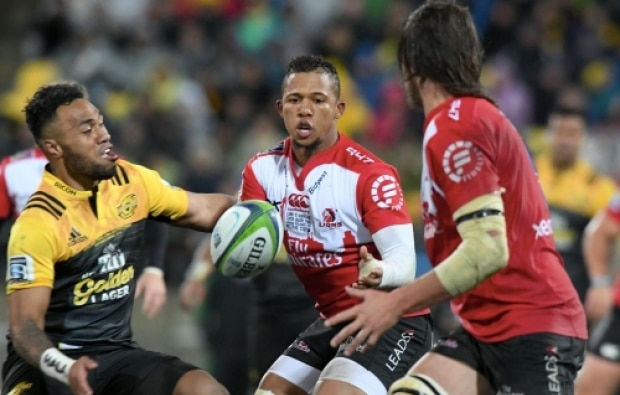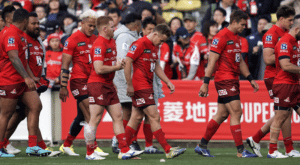The Lions need to back substance over style in Saturday’s semi-final against the Hurricanes at Ellis Park, writes CRAIG LEWIS.
In last year’s semi-final in Johannesburg, the Lions roared to a 42-30 win over the Highlanders in a highly entertaining encounter that saw them outscore their Kiwi opponents five tries to four.
This time around – now against the Hurricanes – it needs to be all about containment rather than entertainment; and accuracy over aesthetics. It must be about clever kicking rather than ball-in-hand brilliance, and physical forward dominance before sexy attacking predominance.
In many ways, the Canes are a unique New Zealand beast. Assistant coach John Plumtree is in charge of a powerful forward pack that boasts supreme athletes such as Ardie Savea and Dane Coles, while they use the kicking game as a key element of their weaponry.
Under the guidance of astute head coach Chris Boyd, the Canes are also one of the most devastating teams on the counter-attack and from first-phase play, but the source of many of these attacking platforms can be traced back to their ferocious linespeed on defence.
There is no doubt that the Canes will look to get into the face of their opponents this Saturday through an aggressive, high-speed and tight knit defensive line that will aim to cut down the time and space that the Lions’ attack thrives on.
It’s through this approach that the Canes will hope to force the Lions into rushed decision-making, ill-timed passes or poor kicks that they can then turn into attacking opportunities of their own.
A prime example of this, in fact, played out in last Saturday’s quarter-final against the Sharks when Andries Coetzee opted for a quick lineout throw-in, which is something that has been regularly seen from the high-tempo and ambitious Lions.
However, the rush defence of the Sharks first hurried Lionel Mapoe into shovelling a ‘hospital pass’ to Elton Jantjies, who in turn threw a speculative offload that landed in the hands of Lukhanyo Am. The ball was recycled and ended in a try for Sharks winger Kobus van Wyk.
As coach Johan Ackermann pointed out afterwards, there was no problem with the quick throw-in, but rather the fact that neither Mapoe or Jantjies took the decision to carry the ball up.
It’s this sort of panic that the Lions must avoid on Saturday. They need to be willing to carry the ball through multiple phases. To use an age-old coaching catch-phrase, the hosts need to first earn the right to go wide.
The Lions must use some of their big ball-carriers such as Malcolm Marx and Ruan Ackermann to punch away at the narrow channels and ensure that the Hurricanes have to keep resetting their defence behind the gainline.
Just as the Lions need to use their ball runners to keep turning the Hurricanes around, so Jantjies needs to use his deft left boot to dink the ball into space over the defensive line, away from playmaker TJ Perenara and preferably behind the Canes’ backtracking wingers.
If Jantjies can maintain his composure, he is the perfect sort of player to keep the Canes’ rush defence guessing, as he boasts the skill-set to attack the gainline, kick long or short, or pass inside or out.
Also working in the flyhalf general’s favour is the fact that on his outside he has a hard-running centre in Harold Vorster – who has a natural ability to choose wonderful running lines – while he can also feed a short ball to fleet-footed ball-running flankers such as Jaco Kriel or Kwagga Smith.
Once the Lions have softened up the Hurricanes’ defence over the first hour of proceedings, they can use the altitude factor to their advantage by utilising their outside backs to attack the spaces that their tiring opponents should begin to concede in the wider challenges.
If the Lions can display patience, pragmatism and an appreciation for possession, while cutting down on their turnover rate (currently averaging 17 per game), then there is every reason to believe that they can and will overcome the Canes.
Photo: Kerry Marshall/Photosport





